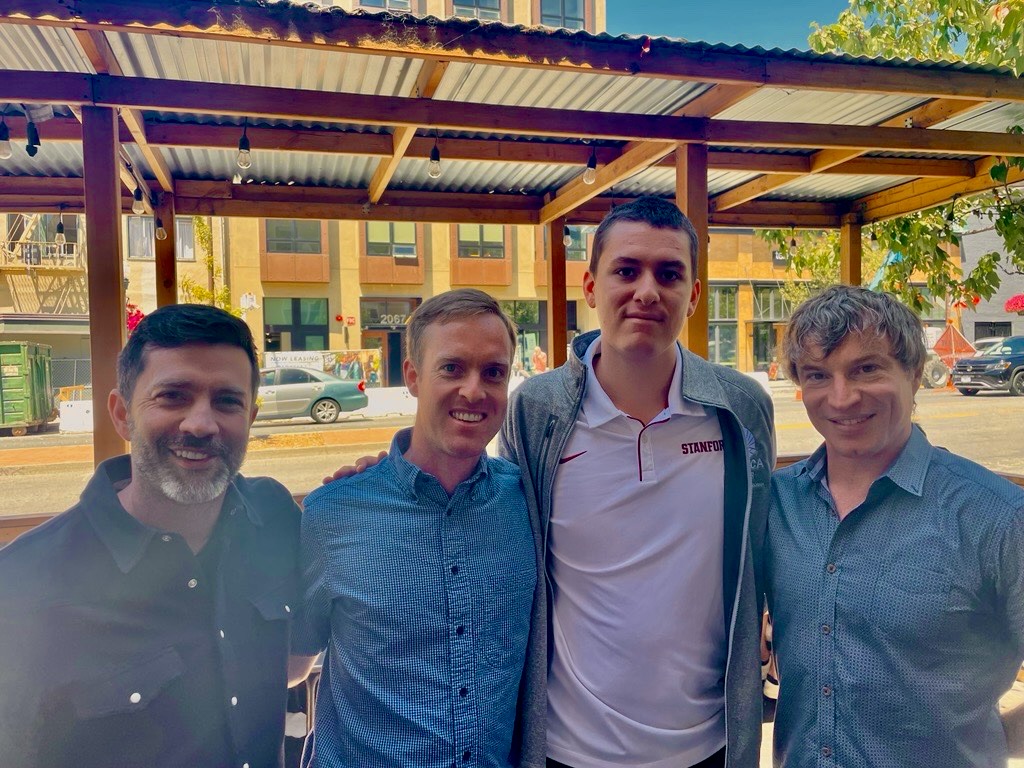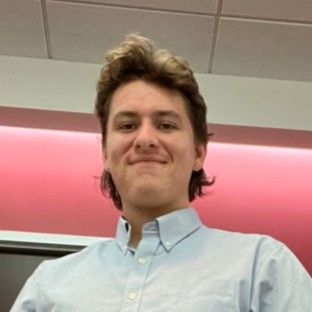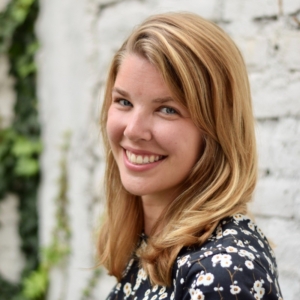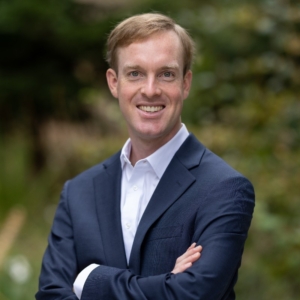
Pictured left to right: Seneca Environmental VP Matt Renner; intern Whitner Chase; intern Elliot Porter; Chris Johnson, Corporate Partnerships
Seneca Environmental Interns
Help Power Our Success
As the Seneca Environmental team grows, we’re fortunate to have the support of an outstanding group of interns. Their robust, diverse background and capabilities are rounding out the expertise of our team, ensuring that we’re well positioned for the greatest success. The Seneca Environmental intern program is overseen and managed by Hanna Sheridan, our Business Operations Manager.
“It has been incredibly rewarding to be surrounded by such bright young professionals,” said Hanna. “I am continually inspired by the passion and motivation of these interns to contribute their time and talents to heal the Earth, always keeping in mind the impact on the next Seven Generations, a guiding principle in our work.”
Now that the summer is drawing to an end, we’d like to highlight our interns and their contributions.
 Elliot Porter
Elliot Porter
A member of the Seneca Nation, Elliot Porter is studying mechanical engineering at Stanford University. After a successful internship last summer with Seneca Holdings, during which he helped produce an excellent video highlighting various Seneca businesses, Elliot joined Seneca Environmental this summer to focus on the potential of renewable energy. Elliot is motivated by a desire to help his nation and to use his engineering skills for Earth-healing work. As a member of the Nation, Elliot is a co-owner of the Seneca Holdings businesses; he is proud to help the company to diversify and expand its work in environmentally beneficial industries.
Elliot has already made valuable contributions that will further the work of Seneca Environmental. To provide a foundation for helping Native communities build renewable energy projects for independence and economic development, we needed an understanding of what these groups have done to date. Elliot spent the summer building a database that gives us a landscape analysis of what the 574 Tribes and Native Nations across the country are doing in energy. That includes documenting which tribes have utilities as well as which tribes are joining coalitions to make renewable energy projects happen. We believe that collaboration is the key to deploying renewable energy at the necessary speed and scale, and the database will help us connect with potential Native partners.
In researching Native Nations’ energy work to date, Elliot found that the largest Native Nations weren’t necessarily the ones doing the most renewable energy work. A number of challenges have kept many Native Nations from embarking on renewable energy projects, such the high upfront costs coupled with a lack of access to federal incentives — something that’s changing now with the Inflation Reduction Act, federal grants, and the Biden Administration’s Justice40 Initiative.
There’s still more to learn about Native renewable energy projects in the U.S., and Elliot hopes to continue building out the database he’s started. We look forward to continuing to work with him.
 Charissa Verdoorn
Charissa Verdoorn
Soon after beginning her internship with Seneca Environmental in October 2022, Charissa Verdoorn had already become an indispensable member of our team. She did this while pursuing a Master’s of the Environment at the University of Colorado Boulder, specializing in renewable energy. Charissa has a BA in Education & Spanish from North Park University in Chicago and is fluent in Spanish.
Charissa has a longstanding interest and involvement in renewable energy and equity, which was strengthened during her 3+ years as Outreach & Policy Manager for Minnesota Interfaith Power & Light, a statewide nonprofit supporting communities of faith to take climate action. There, she organized volunteers representing 400+ Minnesota congregations; this included creating and leading the organization’s first-ever Get Out the Vote campaign, which trained volunteers to have over 3,000 conversations with potential climate voters.
Charissa has been instrumental in conducting research to support our work developing Native renewable energy projects across the country and helping corporations meet their Environmental, Social, and Governance (ESG) goals. She has researched and documented federal grant opportunities that Seneca Environmental is eligible for; created profiles on potential corporate partners, with special attention to their sustainability goals and initiatives; and created initial solar proposals for potential corporate offtakers, using solar modeling software and electric utility bills. Charissa has also represented Seneca Environmental at events such as the Solar Energy Innovation Network Symposium hosted by the Department of Energy.
 Chloé Thibault
Chloé Thibault
Chloé Thibault is pursuing a Master of Science in Sustainability Management at Columbia University. Originally from France, she earned her BA in International Development at King’s College London. She formerly worked in sustainable food consulting in Hong Kong, as well as managing the ESG design and strategy of a real estate investment fund in Paris. With experience in sustainability, impact investing, and international development, Chloé is passionate about creating positive social and environmental change through innovative financial solutions. She strives to have the greatest possible impact through her work.
At Seneca Environmental, Chloé has spearheaded a pioneering research project to identify and advance best practices for developing renewable energy projects that provide Earth-healing benefits beyond energy. We call these +1s; they include workforce development, emergency energy resilience, long-term revenues for economic development, water and soil health, and combining solar arrays with agriculture (agrivoltaics).
For this project, Chloé has been developing a comprehensive framework designed to be seamlessly integrated into the projects we develop. The +1 framework is designed to measure and assess benefits for communities and for the land and ecology where renewable energy projects are sited, which will support the efforts of our corporate customers that want to amplify their ESG programs.
 Whitner Chase
Whitner Chase
A second-year MBA student at the University of California Berkeley, Haas School of Business, Whitner Chase has a BS in Biology and Environmental Studies from Davidson College in North Carolina. He has worked for conservation nonprofit organizations based in Montana and Colorado, and through those experiences he gained exposure to and an appreciation for Native-led organizations and campaigns. Working with the Wyss Foundation’s grants portfolios in Africa and the western U.S., Whitner worked closely with grantees to design the best use of the Foundation’s resources to achieve their goals for growth. Whitner also assisted in grantmaking for land acquisition in the U.S. and around the world, including a project that returned a globally significant wetland to indigenous ownership in the Australian state of New South Wales.
At Seneca Environmental, Whitner is extending his interest in supporting Native communities, splitting his time between the company’s Business Development and Investments teams. In his business development work, Whitner has helped develop proposals to corporate partners and integrated new leads into the company’s information hub. On the Investments team, Whitner sources acquisitions opportunities, provides support on financial modeling, builds proposals, and manages due diligence review processes for acquisition deals-in-process. He’s excited about the growth of Seneca Environmental’s Native-owned Renewables Investment Fund and is happy to connect with prospective vendors and clients. To express interest in learning more about our Native-owned Renewables Investment Fund, contact us using the form below.


